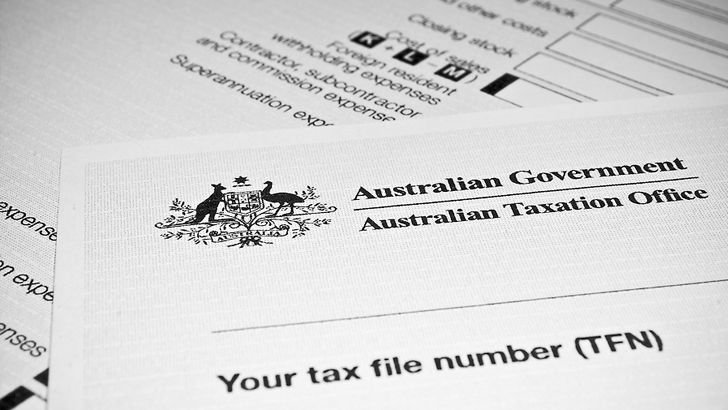How dual citizenship can leave you stuck with a hefty tax bill
By Susan Hely
It is not just Australian politicians who are shocked to discover they are dual citizens.
There are plenty of unsuspecting dual citizens finding themselves in hot water. While politicians have been kicked out of parliament, other dual citizens face big bills for taxes they never dreamed they owed.
Depending on your dual citizenship, you could be obliged to pay tax on your income, capital gains tax when you sell your principal property and investment properties, plus tax on the earnings from your self-managed superannuation fund (SMSF).
Australians don't have to pay inheritance tax but other countries aren't so lenient.
Born in the USA
Martin* was eight when he left the US with his family and moved to Australia. He has been back three times to visit and is now 52. It wasn't until he was filling out some investment forms for his SMSF that he realised he had a big problem.
The global investment bank asked for his renunciation of US citizenship form when it saw on Martin's passport that he was born in the US. Martin didn't have one. He had kept his US citizenship even though he was an Australian citizen because his US passport allowed him to access shorter immigration queues at the airport.
As a high-income earner, Martin realised he could be liable for US tax on his income in Australia, as well as his superannuation under the US grantor tax rule. He might also have to pay capital gains tax on Australian property he has sold over the years.
A quick internet search revealed that he should have been filing expatriate tax returns with the US government every year, and he was required to submit a return disclosing assets held in his bank accounts.
"I can't believe it. I had no idea. I don't know what to do," says Martin. He was paying tax in Australia and never thought he would be liable for US tax.
Accidental citizens
Martin wasn't the only one caught by surprise. Take Katie, who sold the family home, which had appreciated significantly, when she divorced after 30 years of marriage.
She was shocked to discover that because she was a citizen of both Australia and the US, she had to pay $70,000 to the US Internal Revenue Service (IRS).
Also a dual citizen, Ben, who was born in the US but left as a baby and has never been back, was keen to avoid any tax obligations. At 35, he took the drastic step of applying to renounce his US citizenship. It proved to be a long process that involved paperwork, interviews and a fee of more than $1000.
Ines Zemelman, a tax specialist and founder of Taxes for Expats, calls people like Martin, Katie and Ben "accidental Americans" and says that in her 21 years of working with dual US and Australian citizens she has come across them many times.
"These are US citizens or green card holders who were unaware of their US tax obligations because they resided abroad."
Typically there are many people who are born to US parents and may have never set foot in the US but are citizens by birth. Then there are those who move for work or love.
On the radar
One of the reasons US citizens haven't been aware of any obligations is that it was only in September 2015 that Australian authorities signed an agreement with the US to implement the Foreign Account Tax Compliance Act, known as FATCA.
Under this agreement, Australian financial institutions (AFIs) are obliged to report US citizens or US tax resident account holders, or specified US entities established in the US or controlled by US persons to the IRS.
AFIs include banks, some building societies, some credit unions, life insurance companies, private equity funds, managed funds, exchange traded funds and some brokers. Once AFIs gather information, they send it to the Australian tax office, which in turn makes it available to the IRS.
In Martin's case, it was an investment bank that asked about his renunciation. It is obliged to send through his details to the IRS, although Martin says he is hoping that he's not on the IRS radar.
But Peter Bembrick, taxation and accounting partner at HLB Mann Judd, points out that it is almost impossible to escape the radar of different countries and their revenue services. You are electronically tied to them.
"The US tax rules have wide-reaching implications. If you have US citizenship you really have to lodge tax returns to the US, particularly if you want to go back," he says.
Australia has double tax agreements with 40 countries. Most countries don't have any tax claims, but it is hard to generalise about what certain countries demand.

Inheritance tax
While Australia doesn't have inheritance tax, many countries have far-reaching laws that give them tax rights when people inherit property from another country.
If you have an adult child who has moved overseas and acquired citizenship through marriage, that government could make a claim on any assets they inherit. There are plenty of different formulas that impose inheritance tax so it is worth checking out.
Some countries tax intergenerational gifts over a certain threshold, too.
For example, England will tax inheritances over £475,000 ($852,210) by 40%. The Repulic of Ireland also has a big inheritance tax (33%) on amounts over 310,000 euros ($498,000). France has a steeper inheritance tax as it kicks in at a much lower rate.
"Obviously there are risks with transfers of money. It raises tax issues. It happens all around the world," says Bembrick.
Worldwide income
Zemelman says that until the FATCA legislation, many people were simply unaware of their predicament.
"With news coverage and increased treasury regulations, many Australians with US filing obligations are rectifying their delinquency through the various IRS programs, including the streamlined foreign offshore procedures that were created in 2014."
There was another popular program, which she says Tax for Expats did not advocate, called the offshore voluntary disclosure program (OVDP) - it was phased out towards the end of 2018. But Zemelman says if you're not a big earner, the IRS isn't going to hunt you down.
"The IRS is after secret Rockefellers, not average Joes," she says. But at the same time you must not hide out. It is better to come clean and file your return, declaring your worldwide income annually.
Zemelman says it can turn out that you don't have to pay any tax. She has seen some people even get refunds. "Anecdotally, those who have come forward and filed through the various delinquency programs have had no issues and most have not paid any tax."
She says it's a misconception that if you file you will owe tax. "This is not the case for many. You must file but you may not owe."
Zemelman says failing to file puts you at a disadvantage. She points out that since 2014 the IRS has been offering generous amnesty programs to allow you to catch up without penalty.
"Utilise the streamlined foreign offshore program, or its derivatives, to come clean," she advises.
Zemelman says these programs won't last forever and the premise is that you should be forgiven because you didn't know.
"But as more and more time passes, proving you did not know will become harder. Should the IRS remove the current amnesty programs, resolving your delinquency may become far more expensive and tedious."
She says the US has a large toolbox - you don't want to have to dig too deep into it. "Not only is the process arduous but it can become very expensive from a compliance perspective."
Bembrick adds: "You don't want it hanging over your head."
Consult the experts
Finding an expert on foreign tax laws is essential, says Bembrick. It is a specialist area that your local accountant probably won't be across. A firm with overseas affiliates that specialise in these issues is a good place to look for help.
For US citizens who move to Australia as adults, the obligation to lodge tax returns in the US isn't such a surprise. But the tax systems have some big differences, such as the treatment of the principal residence - in Australia they are free of capital gains tax.
US citizens also should think carefully about setting up an SMSF as opposed to joining a pooled superannuation fund because the former has tax obligations in the US.

Come clean with the IRS
Americans must declare their annual worldwide income to the IRS. Even if you don't owe any tax, they must declare income from all sources on US tax returns each year.
File a foreign bank account report (FBAR) with the treasury (no tax generated - simply an informational report) if your non-US financial accounts are over $US10,000 at any point in the year. This includes all non-US bank, investment and retirement accounts, and more.
When you sell real estate outside the US, you are up for capital gains tax in the US. If it is the primary residence for two out of the previous five years, a single person can claim a deduction of $US250,000 from any gain you made. If you are married the amount doubles to $US500,000.
Investment properties don't get any deduction but if you pay capital gains tax in Australia you qualify to reduce your US CGT liability.
If you run a self-managed super fund, the IRS wants to know about it. It treats it as a foreign grantor trust, which carries additional reporting requirements. Moreover, the annual growth in an SMSF is taxable to the owner when received and not eligible for tax deferral.
If you belong to a pooled superannuation fund, it is not treated as a grantor trust and typically doesn't have the same US tax obligations.
Inheritance traps
If you have property in both countries you hold dual citizenship with, take care with your estate planning. In particular, make sure you leave a will with clear instructions about what is to be left to your beneficiaries.
Lawyers warn that dual citizens with assets in both countries, such as Ireland, Italy, Greece, France, Spain, China and Japan, could be hit by the law of the country called "forced heirship", which stipulates that certain people must get a proportion of the estate.
If the rules of the other country clash with your wishes about who will inherit your estate, your family could be in trouble.
Get stories like this in our newsletters.



